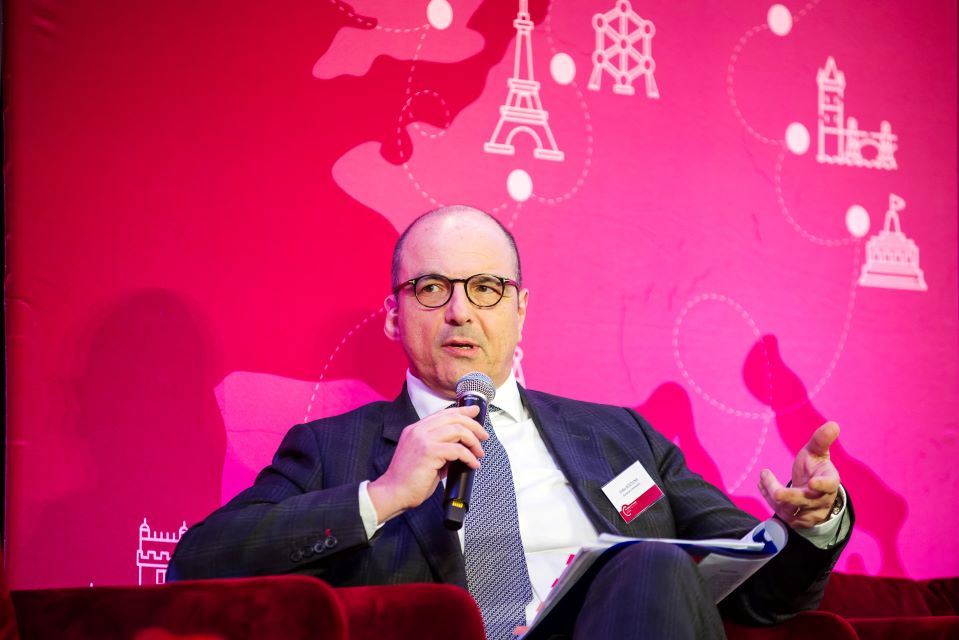Interview
Social Cohesion
A Maltese falcon for European democracy
-
Colin Scicluna
Head of Cabinet for the Vice-President of the European Commission for Democracy and Demography

Colin Scicluna works for citizens’ engagement at the European Commission, armed with an openness that owes much to his native Malta, the EU’s smallest member with a fascinating history.
Colin Scicluna likes a challenge. As a student in 1980s Malta, he had a dream that his tiny home country, population around 500,000, could one day join the European Union. Even though at the time it seemed that Malta would have stood a better chance of winning the European Football Cup than becoming part of the EU. “It looked unachievable because we had a government that was actually moving away from Europe,” he told the Mobility Times. “But it was something I always aspired to.” When the political tide changed, Scicluna joined a new foreign ministry department dedicated to future EU membership as a trainee. “I wanted to be part of it.” A few years later, Malta’s team dedicated to coordinating the entire negotiating effort for accession with the Chief Negotiator was just nine people, including Scicluna, who remembers with a chuckle that Poland, also seeking membership, had over 250 people doing the same job. “Now I appreciate that having been part of a small organization makes you so much more flexible and better at multitasking,” he smiled.
Malta finally joined the EU on January 1, 2004, opening a wide horizon for Scicluna’s diplomatic career that was to include Malta’s mission to the UN in New York, heading the EU’s Middle East and Mediterranean department and being his country’s Ambassador to Austria and the Organization for Security and Co-operation in Europe (OSCE). Scicluna, 57, is now Head of Cabinet for the Vice-President of the European Commission for Democracy and Demography, where he manages operational and strategic affairs. When that operation kicked off in 2019, Scicluna yet again found himself facing a huge task with limited means. “We had a mission letter, but no directorate general and no budget,” he remembers.
Five years on, Scicluna feels that it’s been a worthwhile endeavor. “By focusing on people: studying the impacts of demographic change and by using deliberative processes of citizen engagement, I think we’re starting to introduce a new way of doing policy.” A “new way” that could be crucial in convincing citizens that the EU’s flagship Green Deal – which has run into opposition across the bloc – is worth pursuing. “There are so many interlinked aspects to this discussion,” he said. “You can’t talk about the Green Deal without talking about transport, about mobility, about energy, about food, about demographic change.” Scicluna believes that the EU can steer clear of any “one-size-fits-all” approach, admitting that decision makers may not always be successful in trying to explain complex issues to skeptical populations.
“Perhaps we need to give more visibility to the fact that there is a transition underway, and that it needs to be just and equitable, and to address the impact on ordinary people,” he recommends. “We’ve seen that experts appreciate it when regular citizens bring in an angle that they themselves are not able to bring in.”
Scicluna, a father of two who has made Brussels his home, believes that his Maltese origins prepared him well for the infinitely diverse challenges and patchwork of cultures that make up today’s Europe. “Malta has benefited from a very turbulent and diverse history,” he said, with every foreign influence leaving “something behind”. Like what? “We drive on the other side of the road compared to the rest of the Mediterranean, we have afternoon coffee but we call it tea time, and we’re probably the only southern Europeans who are punctual,” he answered, with a broad smile.

